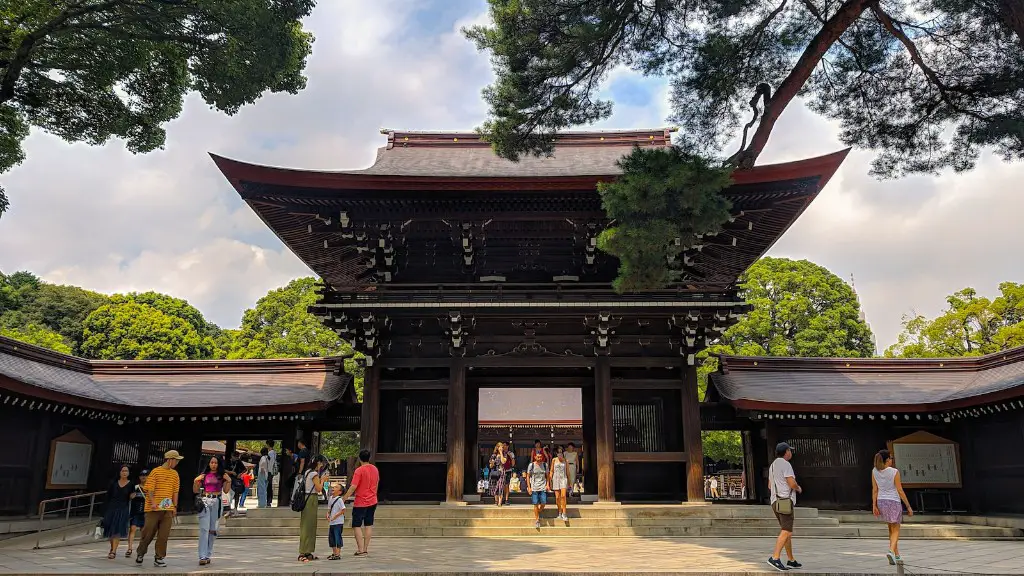There are many schools of thought on whether or not Buddhism is a part of Hinduism. Some believe that the two religions are completely separate, while others believe that Buddhism is a direct offshoot of Hinduism. There are many similarities between the two religions, which could lead one to believe that they are indeed connected. However, there are also many differences between the two religions, which could lead one to believe that they are separate. Ultimately, it is up to the individual to decide whether or not they believe that Buddhism is a part of Hinduism.
Buddhism is not a part of Hinduism.
Is Buddhism is a branch of Hinduism?
Buddhism is a religion that began in India about 2,500 years ago. Siddhartha Gautama, also known as the Buddha, founded Buddhism. The Buddha was born a Hindu, but he did not believe in the Hindu caste system or in the Hindu gods. He believed that people could find liberation from suffering by following his Eightfold Path. This path includes right understanding, right thought, right speech, right action, right livelihood, right effort, right mindfulness, and right meditation.
Buddhism is one of the main religions of Southeast Asia and has a long history and close relationship with Hinduism. It is a major religion in many countries, including Thailand, Myanmar, Cambodia, Laos, and Vietnam.
Why Buddhism is not considered part of Hinduism
Buddhism does not accept the Hindu theory of a creator deity (Ishwara). While Buddhism inherited some practices and ideas from the previous Indian yogic traditions, its understanding is different than that of Hindu teachings (such as those found in the Bhagavad Gita). Buddhism teaches that there is no permanent self or soul (atman), and that the goal of life is to achieve liberation (moksha) from the cycle of rebirth (samsara).
Vedantic Hinduism is based on the philosophical approach of the Upanishads. It is a monistic system of thought that believes that there is only one reality, which is Brahman. Brahman is the absolute, infinite, and transcendent reality. Advaita Vedanta is a sub-school of Vedantic Hinduism that upholds the nonduality of Brahman and Atman (the self). Smartism is a tradition within Hinduism that recognizes six primary gods: Vishnu, Shiva, Shakti, Ganesh, Murugan, and Surya. Each of these gods is considered equally supreme.
Yogic Hinduism is based on the Yoga Sutras of Patanjali. Yoga is a system of physical and mental disciplines that aim to transform the body and mind. The goal of yoga is to attain a state of liberation from all limitations.
“Dharmic” Hinduism, or “daily morality”, is based on the principle of karma. Karma is the law of cause and effect, which holds that every action has a consequences. It is the belief that good deeds will lead to good results, and bad deeds will lead to bad results. This principle is applied to every aspect of life,
Which religion is Buddhism?
Buddhism is a religion with a long and complicated history. It is one of the largest religions in the world and has millions of followers. The religion originated in India over 2,500 years ago, and has since spread to other parts of Asia and the world.
Buddhists believe that human life is full of suffering. They see meditation and good behavior as the way to achieve enlightenment, or nirvana. Nirvana is a state of complete peace and freedom from suffering. Buddhists strive to live in such a way that they can be reborn into a better life, free from the cycle of suffering.
Buddhism is a complex religion with many different beliefs and practices. If you are interested in learning more about it, there are many resources available online and in libraries.
Buddhism developed in reaction to the established religion in India at the time—Hinduism (Brahminism). Buddhism, in contrast to Hinduism, has a single founder and while there is no singular text, there are texts that outline the teachings of the Buddha as the great and exemplary teacher.
Did Hinduism replace Buddhism?
It is interesting to note that while Buddhism flourished in North India, it did not take hold as strongly in South and West India. This may be due to the fact that these regions were already heavily influenced by Hinduism and Jainism. Nevertheless, there were still some small Buddhist centers that persisted into the eleventh and twelfth centuries. However, for the most part, both monastic and lay Buddhism had been replaced by Hinduism and Jainism by the end of the first millennium CE.
Buddhism emerged from the Vedic and Upanishadic tradition of Hinduism in South Asia in the 6th century BCE. The historical Buddha, Siddhartha Gautama, was born into a privileged family in what is now Nepal in 563 BCE. Siddhartha left his comfortable life to seek enlightenment and, after many years of study and practice, is said to have attained nirvana. He then began to spread his message, which stressed the importance of understanding the Four Noble Truths and following the Noble Eightfold Path. Buddhism quickly gained popularity, and by the time of Siddhartha’s death, there was a flourishing community of monks and nuns. Today, Buddhism is the fourth largest religion in the world, with over 500 million followers.
Does Hinduism and Buddhism have the same God
There is no doubt that both Hinduism and Buddhism share a lot in common when it comes to their gods. In Hinduism, these deities are seen as divine and all-powerful, while in Buddhism they are more subordinate. However, Buddhism does not believe in a god per se, with the Buddha being seen more as a guide or teacher.
In reality, however, there is no such thing as a “trinity” of Hindu gods. There is only one creator god in Hinduism, and that is Brahma. Vishnu and Shiva are not creator gods; they are preserver and destroyer gods, respectively.
How many religions are there in Hinduism?
Vaishnavism is the worship of Vishnu, the preserver god in the Hindu trinity, and his avatars. Vaishnavites believe that Krishna is the supreme god. Shaivism is the worship of Shiva, the destroyer god in the Hindu trinity. Shaktism is the worship of the goddess Shakti, the consort of Shiva. The Smarta tradition is a nonspecific devotion to the Hindu pantheon of gods.
Hindus believe that there are four goals in human life: kama, the pursuit of pleasure; artha, the pursuit of material success; dharma, leading a just and good life; and moksha, enlightenment, which frees a person from suffering and unites the individual soul with Brahman.
Who are the 3 gods of Buddhism
Vajrapani is one of the earliest bodhisattvas in Mahayana Buddhism and is often associated with the protection of the Buddha. He is usually shown holding a vajra, which is a type of Buddhist weapon.
Mañjuśrī is a bodhisattva who represents the wisdom of all the Buddhas. He is often shown holding a sword, which symbolizes the cutting of ignorance.
Avalokiteśvara is a bodhisattva who embodies the compassion of all the Buddhas. He is often shown holding a lotus flower, which symbolizes purity.
Buddhism is a religion that does not focus on worshiping a supreme god or deity. instead, Buddhists believe that enlightenment—a state of inner peace and wisdom—is the ultimate goal. When followers reach this spiritual echelon, they are said to have experienced nirvana. The religion’s founder, Buddha, is considered an extraordinary being, but not a god.
Is Buddhism a Hindu or Dharma?
Dharma is a key concept with multiple meanings in Hinduism, Buddhism, and Jainism. In Hinduism, dharma is the religious and moral law governing individual conduct and is one of the four ends of life. In Buddhism, dharma refers to the teachings of the Buddha and the path to enlightenment. In Jainism, dharma is the principle of right living and is one of the three jewels.
The social caste system as described by Hindu Dharma was likely one of the biggest factors in the development of Buddhism. The Buddha was born into a warrior caste, but he rejected the ideology of caste and instead preached that all people are equal. This message was radical at the time, and it likely contributed to the Buddha’s appeal. Buddhism developed in reaction to the established religion in India at the time—Hinduism (Brahminism). Brahminism was the religion of the upper castes, and it was very exclusive. The Buddha’s message of equality was a direct challenge to this existing social order.
Final Words
No, Buddhism is not a part of Hinduism.
Buddhism is not a part of Hinduism.



